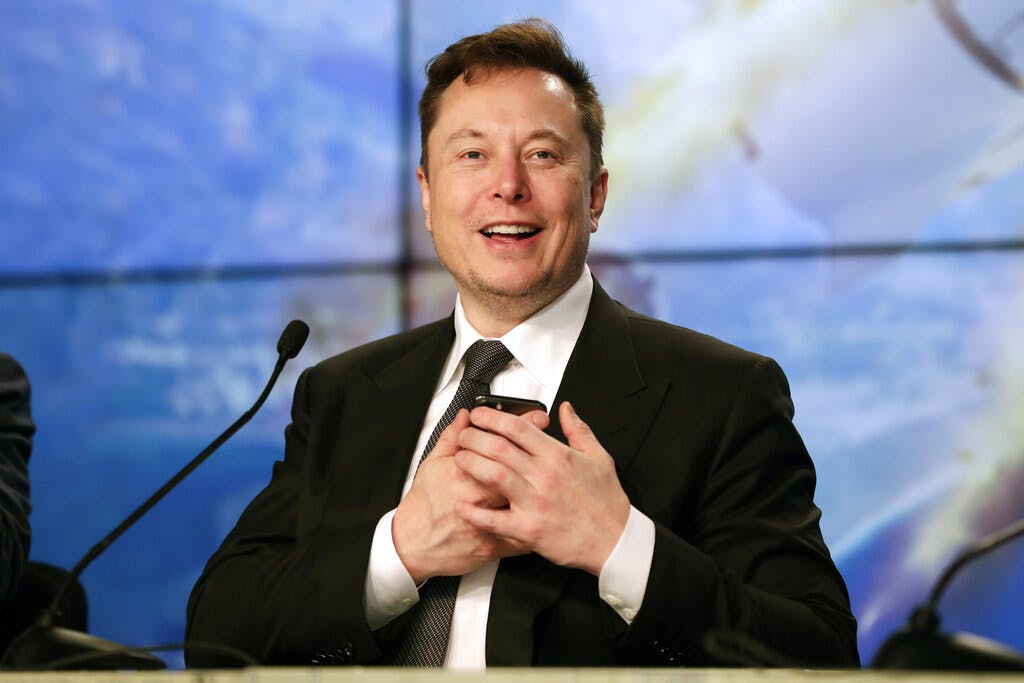Iran’s Protesters Find in Elon Musk What Could Be the Beginning of a Beautiful Friendship
Starlink will be made available gratis to the protest movement against the ayatollahs.

The aftermath of Mahsa Amini’s death may well gel into a turning point for Iran — for the Iranian people now have the billionaire owner of Starlink, Elon Musk, at their side. Will Washington join him?
“Welcome back to the fight,” Victor Laszlo tells Rick Blaine, the fictitious “Casablanca” barkeep who had previously vowed to “stick out my neck for nobody.” Much encouraged by Blaine’s decision to get off the fence in a war against evil, Laszlo says, “Now I know our side will win.”
By offering his Starlink services to the Iranian protest movement, Mr. Musk is pulling a Blaine. Victory, however, is far from guaranteed, as the Iranian regime has honed the dark and violent art of suppressing dissent. Protesters are nonetheless filling streets in big cities and small towns across the country for a fifth day, as fears of the regime’s enforcers seem to dissipate amid the anger.
An increasing number of women are posting videos on social media as they remove mandatory Islamic headdresses, an act that is punishable by imprisonment or worse. The current wave of protest erupted after Amini, arrested for wearing her hijab improperly, died from injuries sustained while in custody. As in the past, the regime reacted to the wave of dissent by cutting off internet services to large parts of the country.
“In November of 2018 the regime shut down the internet to hide the extent of its crackdown. Later, we discovered that more than 1,500 protesters were killed,” a prominent Iranian-American who opposes the mandatory Hijab, Masih Alinejad, told the Sun. “Elon’s plan means the dictators can’t switch off the internet to hide the truth.”
Yesterday, Mr. Musk boasted in a tweet that his Starlink system, which provides mobile satellite-based internet connectivity to areas where none would otherwise be available, is now being used in all continents “including Antarctica.” Among the tens of thousands who responded to the tweet was an Iranian activist.
“I’m sure you won’t answer it Mr Musk, but is it technically possible to provide Starlink to Iranian people? It could be a game changer for the future,” a journalist and doctorate researcher, Erfan Kasraie, wrote. Mr. Musk replied almost immediately: “Starlink will ask for an exemption to Iranian sanctions in this regard.”
Early in the Ukraine war, as Russia locked internet services, Mr. Musk rushed Starlink devices to Ukrainians, helping to establish connectivity for the troops fighting the invader.
President Biden has the opportunity to publicly grant Mr. Musk’s request to do the same in Iran in front of the entire world. The American president, who customarily opens the annual United Nations General Assembly’s debate, is currently slated to address it tomorrow, in the seventh spot of the gabfest’s second day. He will follow the Islamic Republic’s president, who will speak second.
As protests against the regime flood Iranian streets, President Raisi landed in New York this morning, accompanied by advisers including Gholam-Hossein Esmaili. A former prisons spokesman, Mr. Esmaili is sanctioned by the European Union for “complicity in the massive detention of political protesters and covering up abuses performed in the jailing system.” Mr. Raisi himself is accused of sending tens of thousands of Iranians to the gallows in the 1980s.
Despite their bloody record, Washington permitted entry to Mr. Raisi and his entourage. The state department argued it must do so under the 1947 agreement with the UN, in which the host country vowed to grant visas to all participants in the proceedings at Turtle Bay.
Never mind that Congress has granted the White House the right to deny visas to UN guests that put Americans at risk. Mr. Raisi presides over a regime that threatens former U.S. officials, as well as Iranian-Americans like Ms. Alinejad. A group of U.S. senators led by Ted Cruz of Texas have urged Mr. Biden to deny visas to Mr. Raisi, to no avail. State department officials say they take their obligations under the UN host-country agreement “very seriously.”
As an alternative plan to the muribund diplomacy with Tehran fails to materialize, Mr. Biden remains hopeful that the Iranians will sooner or later agree to revive the 2015 nuclear deal. “We continue with the diplomacy as long as the Iranians are willing to continue with diplomacy,” the American ambassador at the UN, Linda Thomas-Greenfield, who is a member of Mr. Biden’s Cabinet, told CBS today.
No meeting is expected between Mr. Biden and the Iranian president at the UN. Mr. Raisi said such a meeting would not be useful. Yet, Mr. Biden insists that diplomacy with one of the world’s most oppressive regimes is beneficial to America.
Like Captain Louis Renault of “Casablanca,” Mr. Biden may one day join Mr. Musk. He could defy UN niceties and announce in his speech tomorrow that Tehran is no longer his viable partner in diplomacy, and that he will side instead with those who want to overthrow the regime. Such a turnaround would all but assure that “our side will win.”

